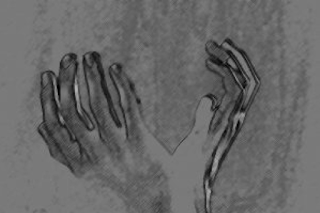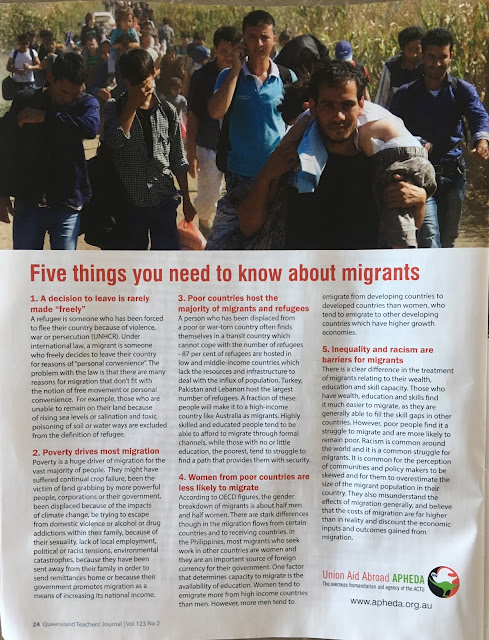We advocate for the release of children from immigration detention and take the position that detention is never in the best interests of a child. Working together since 2012, we include 26 member organisations, representing around 170 staff, 1,100 volunteers and 150,000 supporters in all States and Territories in Australia.
Protecting Children from Detention Policy Proposal 2018
Overview
The End Child Detention Coalition is working to ensure children are never placed in an immigration detention facility on Australian territory.
Immigration detention of children is an expensive policy that causes unnecessary suffering and harm.
Detention has a profound impact on children’s health and development.
1 Detained children experience high rates of depression, anxiety and post-traumatic stress disorder: insomnia, nightmares and withdrawal are common.
2 Children in detention often feel hopeless and dejected, leading a high proportion to self-harm and attempt suicide.
3 Even very short periods of detention can undermine children’s psychological and physical well-being and compromise cognitive development.
4 The impacts can last a lifetime.
Read the full text by following this link.
We advocate for the release of children from immigration detention and take the position that detention is never in the best interests of a child. Working together since 2012, we include 26 member organisations, representing around 170 staff, 1,100 volunteers and 150,000 supporters in all States and Territories in Australia.
Protecting Children from Detention Policy Proposal 2018
Overview
The End Child Detention Coalition is working to ensure children are never placed in an immigration detention facility on Australian territory.
Immigration detention of children is an expensive policy that causes unnecessary suffering and harm.
Detention has a profound impact on children’s health and development.
1 Detained children experience high rates of depression, anxiety and post-traumatic stress disorder: insomnia, nightmares and withdrawal are common.
2 Children in detention often feel hopeless and dejected, leading a high proportion to self-harm and attempt suicide.
3 Even very short periods of detention can undermine children’s psychological and physical well-being and compromise cognitive development.
4 The impacts can last a lifetime.
Read the full text by following this link.
No Friend But the Mountains
Writing from Manus Prison
By: Behrouz Boochani, Omid Tofighian (Translator)
Where have I come from? From the land of rivers, the land of waterfalls, the land of ancient chants, the land of mountains...
Since 2013, Kurdish journalist Behrouz Boochani has been held in the Manus Island offshore processing centre.
People would run to the mountains to escape the warplanes and found asylum within their chestnut forests...
This book is the result. Laboriously tapped out on a mobile phone and translated from the Farsi. It is a voice of witness, an act of survival. A lyric first-hand account. A cry of resistance. A vivid portrait through five years of incarceration and exile.
Do Kurds have any friends other than the mountains?
'A chant, a cry from the heart, a lament, fuelled by a fierce urgency, written with the lyricism of a poet, the literary skills of a novelist, and the profound insights of an astute observer of human behaviour and the ruthless politics of a cruel and unjust imprisonment.' ARNOLD ZABLE
Behrouz Boochani holds a Masters degree in political geography and geopolitics. He is a Kurdish-Iranian journalist, scholar, cultural advocate, writer and filmmaker, founder of the Kurdish language magazine Weya, an Honorary Member of PEN International. In 2013, he fled Iran and became a political prisoner of the Australian Government incarcerated in the Manus Regional Processing Centre (Papua New Guinea).
Since 2013, Kurdish journalist Behrouz Boochani has been held in the Manus Island offshore processing centre.
People would run to the mountains to escape the warplanes and found asylum within their chestnut forests...
This book is the result. Laboriously tapped out on a mobile phone and translated from the Farsi. It is a voice of witness, an act of survival. A lyric first-hand account. A cry of resistance. A vivid portrait through five years of incarceration and exile.
Do Kurds have any friends other than the mountains?
'A chant, a cry from the heart, a lament, fuelled by a fierce urgency, written with the lyricism of a poet, the literary skills of a novelist, and the profound insights of an astute observer of human behaviour and the ruthless politics of a cruel and unjust imprisonment.' ARNOLD ZABLE
Behrouz Boochani holds a Masters degree in political geography and geopolitics. He is a Kurdish-Iranian journalist, scholar, cultural advocate, writer and filmmaker, founder of the Kurdish language magazine Weya, an Honorary Member of PEN International. In 2013, he fled Iran and became a political prisoner of the Australian Government incarcerated in the Manus Regional Processing Centre (Papua New Guinea).
With empty hands: How the Australian Government is forcing people seeking asylum into destitution
With empty hands: How the Australian Government is forcing people seeking asylum into destitution
Refugee Council of Australia
This report tells the story of over 30,000 people seeking asylum in Australia, and
the Australian Government has, in various ways, denied them access to work, study, income and much-needed health services.
The report tells the story of people like Rajan, who came seeking safety and found
himself living in the shadows. They have lived for years in our detention centres, and
then lived in our community without the right to work or study. Once they had the
right to work, they struggled to find work with their short-term visas and their English
skills. They struggled to renew their visas and their Medicare cards, meaning there
were times when they could not look for a job or get the healthcare they needed. For
years, they were denied the right to apply for asylum and then, once they got it, they
found they couldn’t get any legal help.
Now, they are still waiting for a decision years after struggling to get through every
day. For many, their lifeline is a support program that provides 89% of a Newstart
allowance, or around $35 a day. Yet this too is now being taken away from them, with
an estimated 7,000 likely to lose all income in the next few months because of yet
more punitive policy changes. People will lose their homes, have to stop taking vital
medication, go hungry so their children can eat, and end up in work where they are
exploited.
This is the first report to explain the bewildering and ever-changing policies that have
led us here. It reflects the voices of people seeking asylum and those who work with
them, gathered through our national annual consultations in 2016 and 2017.
With empty hands we cannot do anything. It’s like you ask me to paint this
wall without giving me any paint and brush and I ask ‘how can I do it’ and you
respond ‘I don’t know, just do it’.
— Ali, seeking asylum in Perth
Catholic Justice and Peace Commission of the Archdiocese of Brisbane
https://cjpcbrisbane.files.wordpress.com/2018/04/accompanying-people-seeking-asylum-april-2018.pdf
In this document attention is drawn to the growing number of families and individuals facing destitution in our community. The document explains in a straight forward way who refugees and people seeking asylum are and their legal status. It invites parishes to become a sanctuary for refugees and people seeking asylum.
In this document attention is drawn to the growing number of families and individuals facing destitution in our community. The document explains in a straight forward way who refugees and people seeking asylum are and their legal status. It invites parishes to become a sanctuary for refugees and people seeking asylum.
Rescue by David Miliband
In Rescue: Refugees and the Political Crisis of our Time(TED Books 2017), David Miliband takes us from war zones in the Middle East to peaceful suburbs in America to explain the crisis and show what can be done, not just by governments with the power to change policy but by citizens with the urge to change lives. His innovative and practical call to action shows that the crisis need not overwhelm us.
In Rescue: Refugees and the Political Crisis of our Time(TED Books 2017), David Miliband takes us from war zones in the Middle East to peaceful suburbs in America to explain the crisis and show what can be done, not just by governments with the power to change policy but by citizens with the urge to change lives. His innovative and practical call to action shows that the crisis need not overwhelm us.
Miliband says this is a fight to uphold the best of human nature in the face of rhetoric and policy that humor the worst. He defends the international order built by Western leaders out of the ashes of World War II, but says now is the time for reform. Describing his family story and drawing revealing lessons from his life in politics, Miliband shows that if we fail refugees, then we betray our own history, values, and interests.
The message is simple: rescue refugees and we rescue ourselves.






